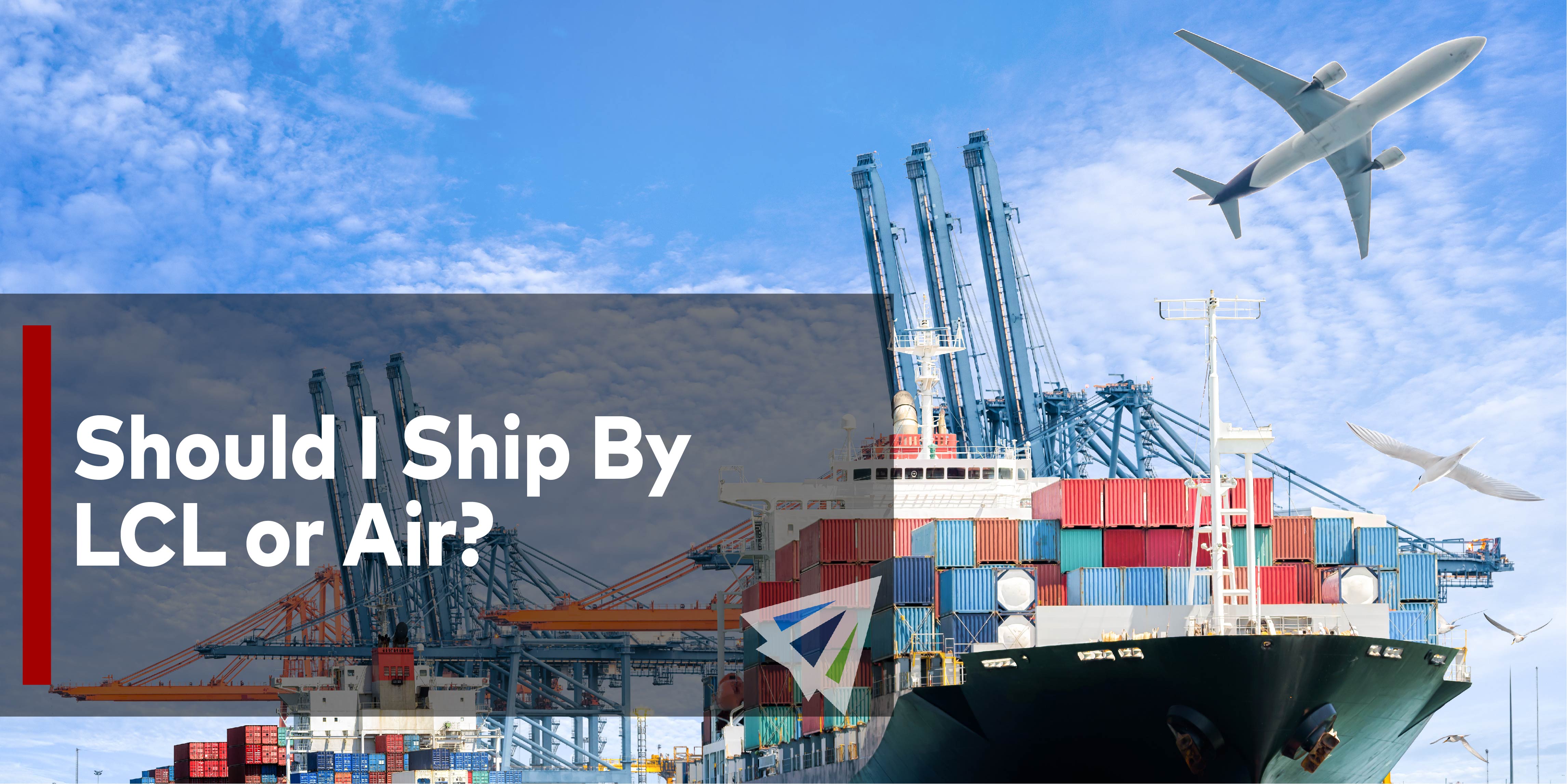Shippers tend to put a lot of emphasis on the difference between road, air, and rail, but when it comes down to actual shipping practices, the fairest comparison may be based on shipment size. In other words, truckload and LTL shipping are like comparing apples and oranges. Different functions, way different pricing, and meant for completely different sizes of shipments. But LCL and air shipping actually have a lot in common.
If your company frequently ships via LCL, could it be time to switch to air shipping?
LCL vs. Air Shipping: Which to Choose
There are a lot of factors to consider here- budget, timelines, risk of cargo damage, destination, who your customer is, and many more. While we can’t lay out every possible scenario and which shipping mode will be better, we can enable you with insights to make your own decision.
We’ve done more LCL and air shipments than we can count, so we recognize the scenarios in which either may be a better choice. Here is a high-level overview of some of the biggest factors to consider the differences between LCL and air shipping:
1) Cargo Damage
Doesn’t take a rocket scientist to know that cargo damage usually occurs due to mishandling of a product (hint: as soon as it’s out of your warehouse, that’s on the carriers).
The easiest way for us to explain which is at higher risk for cargo damage is to lay out a brief summary of how each mode of shipping works:
LCL: Cargo picked up from dock, trucked to a CFS (container freight station), pulled out of its container, consolidated with other shippers’ cargo, drayed to the port, loaded on the ocean vessel, sails to destination, unloaded, drayed to a CFS, deconsolidated, reloaded onto a truck, and trucked the final miles to your customer’s door.
Whew..Ok, now air shipping
AIR: Cargo picked up from dock, trucked to airport, loaded into air container, loaded onto plane, flown to destination, unloaded, loaded to truck, sent to customer’s door.
Air shipping has about 50% the number of steps as LCL, meaning your cargo is fingerprinted by carrier significantly less. That drastically decreases the chances for cargo damage.
2) Budget
This is also pretty self-explanatory. It’s kind of a given that ocean is cheaper than air freight, and the same remains true (generally speaking) for this comparison.
Keep in mind, LCL shipping can get pricey if you’re not following best practices regarding the tipping point between LCL and FCL, but usually speaking, LCL is going to be significantly cheaper than air freight when shipping overseas.
Obviously, factors such as amount of cargo, type of cargo, and destination (AKA, length of transport) will all have drastic implications on your underlying costs, so make sure to reach out to your forwarder about the pricing difference between the two for your specific lane. In fact, if you have any questions about this, feel free to just give us a call! We answer questions like these all the time and know a lot about the subject, we we’d be happy to help you out.
3) Delivery Speed
And yet a third point that’s not too hard to figure out. There’s absolutely no competition on delivery speed between air shipping and LCL shipping. Air shipments take a matter of hours (at most a couple days), while LCL shipments can take weeks to upwards of a month or more.
But that doesn’t just mean air is the better options. Do your shipments need to get there quick, or can you simply plan in advance? Different industries require different shipping timelines, so everyone’s situation will be unique.
Which Is Right for You?
Maybe air shipping is significantly too expensive for your company, but then again, maybe that cost difference is minuscule. You won’t know until you talk to a forwarder like Interlog USA and have us crunch the numbers for you.
Perhaps you aren’t shipping very damage-prone cargo, but maybe it’s incredibly fragile. If you’re blocking and bracing practices are good enough, LCL may be the way to go, but if cargo damage is important to avoid for your business, maybe air shipping is right for you. Regardless, make sure your cargo is insured.
Finally, maybe your cargo needs to be overseas within moments of request, but maybe your specific business isn’t constrained by timelines and deadlines with shipments all that much.
Essentially, you’re putting cargo safety and delivery speed up against total freight costs. If you have any questions as to how that will all weight out for your company, please just reach out to us! We’d love to answer any questions regarding LCL vs air shipping that you may have.
